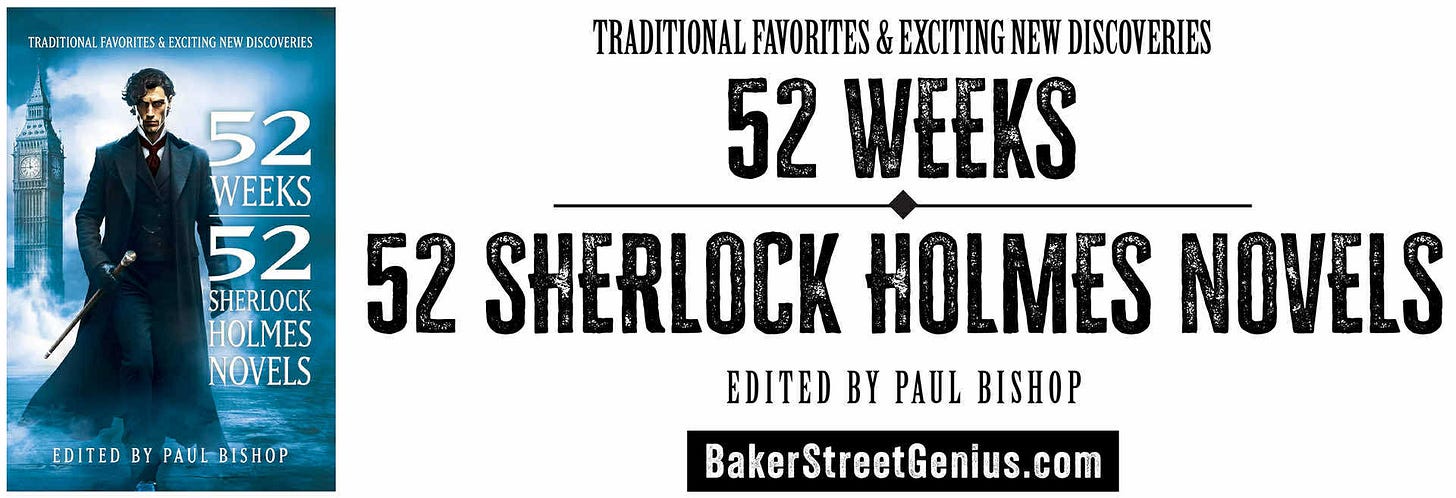Few fictional characters have endured like Sherlock Holmes. Since his first appearance, Holmes has fascinated generations with his razor-sharp intellect, uncanny powers of observation, and stoic aloofness. A Victorian creation rooted in the foggy gaslit streets of London, Holmes has nonetheless proven to be remarkably adaptable—evolving through literature, radio, film, television, comics, and digital media. As we move deeper into the 21st century, questions arise about what lies ahead for this singular detective. Will Holmes continue to thrive in an age of artificial intelligence, global surveillance, and shifting cultural paradigms? The answer, it seems, lies in his very nature—both timeless and perpetually reinvented.
Born at a crossroads of tradition and modernity, Sherlock Holmes a character built for reinvention. Victorian readers were enthralled by the new sciences—phrenology, criminology, chemistry—and Holmes represented these cutting-edge disciplines in human form. But he was also a nostalgic figure, evoking the Romantic notion of the solitary genius who triumphs over chaos.
This duality—modern yet nostalgic—has enabled Holmes to endure. He has become less a fixed literary figure and more an archetype: the embodiment of logic and order in a chaotic world. Because of this, each generation finds new meaning in Holmes. The 1940s Basil Rathbone films cast Holmes as a World War II patriot. The 1980s Granada series with Jeremy Brett returned him to a richly detailed Victorian milieu. More recently, Sherlock reimagined Holmes as a high-functioning sociopath navigating 21st-century London via smartphones and blogging.
What emerges from these reimaginings is not a linear evolution but a mosaic of Holmeses, each shaped by the cultural anxieties and technologies of their time. As long as the world remains complex and opaque, there will be a need for someone like Holmes to help us decode it.
One pressing question concerns Holmes’ place in an age of artificial intelligence and big data. In Conan Doyle’s stories, Holmes is essentially a human algorithm, absorbing vast stores of seemingly trivial knowledge—tobacco ash, footprints, regional dialects—and processing them with machine-like precision. Today, however, we live in a world where actual algorithms are beginning to rival and even surpass human capacities for data analysis. So where does that leave Holmes?
Interestingly, Holmes’ value has never been in what he knows, but how he thinks. His true genius lies not in the facts he memorizes but in the imaginative synthesis of disparate clues. In a world flooded with information, Holmes’ deductive reasoning may become even more essential—not because he knows more than a computer, but because he understands how to ask the right questions. As algorithms increasingly dominate decision-making in law enforcement, medicine, and even justice, Holmes reminds us that logic must be tempered with judgment, intuition, and ethics.
This sets the stage for new iterations of Holmes. A future version might work alongside artificial intelligence rather than compete with it. Perhaps Holmes becomes a consultant for governments using predictive policing software, or he investigates crimes where the main suspects are algorithms themselves—cases involving surveillance abuse, AI bias, or synthetic media.
The global appeal of Sherlock Holmes has also led to some fascinating cultural reinterpretations. From Japan’s anime Case Closed—Detective Conan to India’s Byomkesh Bakshi detective stories inspired by Holmes, Holmesian logic has transcended national boundaries. In recent years, adaptations like Miss Sherlock, set in modern-day Tokyo with gender-swapped protagonists, show how malleable and universal the character has become.
The future will likely see Holmes continue to evolve through multicultural lenses. A Nigerian Holmes might navigate cybercrime rings in Lagos; a Brazilian Holmes could tackle corruption in São Paulo; a Chinese Holmes might deal with industrial espionage in a booming tech economy. These interpretations not only reflect local issues but breathe fresh life into Holmes’ character by challenging and reshaping his cultural assumptions.
Moreover, this opens the door to more diverse casting and storytelling. Traditional portrayals of Holmes as an aloof white Englishman are already giving way to more inclusive representations. Casting actors of different ethnicities, genders, or abilities reaffirms the core truth of the character: it is not the pipe or deerstalker that defines Holmes, but the mind behind them.
Another future challenge lies in ethics. The original Holmes often walked a fine line between justice and legality. He broke into homes, destroyed evidence, and manipulated witnesses—all in pursuit of a higher moral truth. In a modern context, where privacy is hotly contested and surveillance omnipresent, how will Holmes’ methods be judged?
This opens fertile ground for complex storytelling. A contemporary Holmes might find himself at odds with institutional power, fighting not just criminals but systems of oppression. As society reconsiders its heroes and their methods, Holmes must be allowed to evolve from an unquestioned moral authority into a more reflective figure who grapples with the implications of his choices.
The mediums through which Holmes is shared are also evolving. Interactive fiction, virtual reality experiences, and immersive games are already reimagining detective stories. Holmes has appeared in video games such as The Testament of Sherlock Holmes and Crimes and Punishments, where players step into his shoes to solve mysteries.
With the advent of generative storytelling and AI-powered narratives, it’s possible we’ll soon have personalized Holmes stories tailored to each reader’s preferences. Holmes could become a virtual companion, solving mysteries with—or for—us in real time, perhaps through augmented reality or AI-driven chat interfaces. In this way, Holmes could become a participatory experience rather than a passive one.
Such innovations don't undermine the detective; they extend him. Just as Conan Doyle once used the cutting-edge form of serialized fiction to bring Holmes to life, future creators will use emerging media to reinvent him for new audiences.
Sherlock Holmes is more than a character. He is a cultural constant—part myth, part mirror. As long as we live in a world filled with uncertainty, injustice, and hidden truths, Holmes will have a role to play. Whether as a 19th-century gentleman, a 21st-century hacker, or a futuristic AI whisperer, Holmes endures because he symbolizes the quest for clarity in a murky world.
The future of Sherlock Holmes is not in preserving him unchanged, but in allowing him to adapt—just as he always has. The game, it seems, is never truly over. It merely changes form—and Holmes, master of transformation as much as deduction, will always be ready to play.
Paul Bishop is the author of fifteen novels, including the award winning Lie Catchers. He is also the editor of 52 Weeks 52 Sherlock Holmes Novels—a multi-author compendium of essays regarding fifty-two of the best Sherlockian pastiches plus much more—Available on Amazon or from Genius Books...





